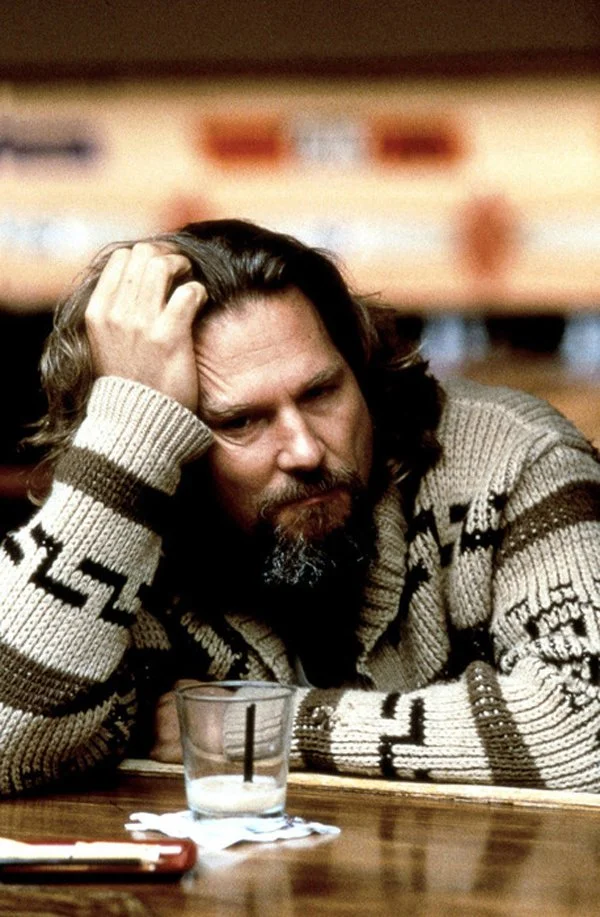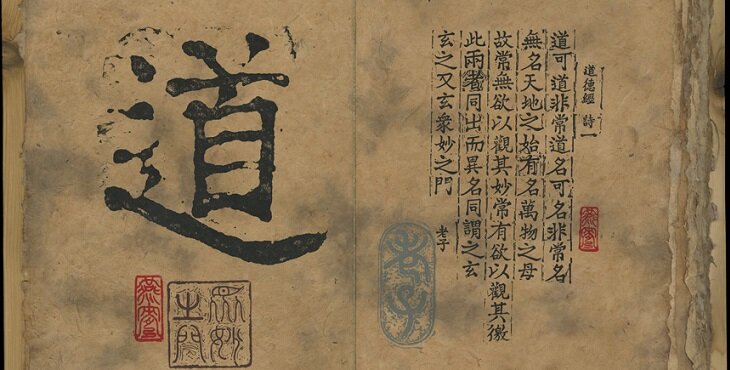I've been told that this is one of the most widely known and popular verses from the Tao Te Ching. It is no exaggeration to say that it has me tearing up a bit reading it. Life is very good, when we let it be good—when we get out of our own way.
Verse 25
Dyer Translation
There was something formless and perfect
before the universe was born.
It is serene. Empty.
Solitary. Unchanging.
Infinite. Eternally present.
It is the Mother of the universe.
For lack of a better name,
I call it the Tao.
I call it great.
Great is boundless;
boundless is eternally flowing;
ever flowing, it is constantly returning.
Therefore, the Way is great,
heaven is great,
earth is great,
people are great.
Thus, to know humanity,
understand earth.
To know earth,
understand heaven.
To know heaven,
understand the Way.
To know the Way,
understand the great within yourself.
Verse 25
Kwok, Palmer, Ramsay Translation
Before the world was
And the sky was filled with stars...
There was a strange, unfathomable Body.
This Being, this Body is silent
and beyond all substance and sensing.
It stretches beyond everything
spanning the empyrean.
It has always been here, and it always will be.
Everything comes from it, and then
it is the Mother of Everything.
I do not know its name. So I call it TAO
I am loath to call it greater than everything',
but it is.
And being greater, it infuses all things
moving far out and returning to the Source.
Tao is great.
Tao, the Great!
It is greater than Heaven,
Greater than the Earth —
Greater than the king.
These are the four great things,
and the ruler is the least of them.
Humanity is schooled by Earth;
Earth is taught by Heaven,
And Heaven is guided by the Tao.
And the Tao
goes with what is absolutely natural.
Verse 25
Dale Translation
What preceded life? The earth.
What preceded the earth? The universe.
What preceded the universe?
The soundless and shapeless, origin of origins,
ever transforming and having no beginning nor end.
This mother off the universe is boundless, and nameless.
But if we wanted to share with you anything
about this remarkable non-executing executor,
we must invent a name for it.
We will call it the Tao because Tao means great.
Incredibly great because it occupies infinite space,
being fully present in the whole universe, and in
every infinitesimal particle.
Because this Great Integrity created the universe,
and the universe created the earth,
and the earth created us, we are all incredibly great.
Life derives from the nature of the earth.
The earth derives from the nature of the universe.
The universe derives from the nature of the great integrity.
And the great integrity is the omnipresent, omnigenous omniform,
the universal material and spiritual substance
and the holoversal interlinkage and coition of existence.
Dyer's thoughts on this verse:
Many of the scholars who have written about the Tao Te Ching over the centuries consider this 25th verse to be one of the most significant lessons in the entire manuscript. In my research, all the translations of this passage actually include the word great to describe it.
This verse tells the story that even before the beginning there existed “something formless and perfect.” It goes on to say that this formless perfection is the “Mother of the universe.” Even though it’s nameless, it’s called the “Tao,” and it’s synonymous with what is great. That is, there’s nothing within the Tao that is the opposite of great—there’s nothing that’s puny, insignificant, weak, unimportant, or even average.
The story appears to want the reader to realize there’s a pure, timeless energy that’s within everything on the planet and that remains uncontaminated by the solid appearance of form. The conclusion is a directive to the student, who is you, the reader. To know this formless perfection, you must “understand the great within yourself.” You’re the central character in this wonderful saga!
Since you’re animated by the eternal Tao, this tale’s message of greatness invites you to change the way you live and to see the life you’re living change. You can begin to do so by examining thoughts and ideas that are inconsistent with this phenomenal observation made by Lao-tzu, which has been echoed by others throughout history. In her book The Journey, which was published in 1954, Lillian Smith describes it like this:
The need that one feels every day of one’s life, even though one does not acknowledge it. To be related to something bigger than one’s self, something more alive than one’s self, something older and something not yet born, that will endure through time.
That enduring “something” confirms your greatness, your absolute connection to the infinite. There’s a sense of being permanently aligned with a sort of senior partner that is greatness itself.
Lao-tzu advises you to notice the planet, its people, and the heavens and see greatness. Next, look at yourself and see that you’re a component of them all. That is, befriend what appears to be the great mystery of creation by discovering the greatness within you, then bask in the joy of noting the greatness you share with heaven, Earth, and all of its people. By persistently hanging on to your own “greatness heritage,” you ensure that the always-present Tao is consciously available. From a perspective of greatness, only greatness can emerge from you; from an inner perspective of inferiority, you only attract events that align with those beliefs.
Your greatness won’t be found in a classroom; an apprenticeship; a teacher; or flattering comments from well-meaning family members, friends, or lovers. It is within you. It’s crucial for you to become conscious of the greatness that constantly flows through you—to do so, meet it in meditative moments of gratitude, and cease to be influenced by contrary points of view.
In particular, watch and listen for the critical comments that originate from your own inner dialogue. When such thoughts emerge in your mind, let them tell you what they want. If you allow those not-so-great notions to speak, you’ll always discover that what they really want is to feel good. Give them the time they need to trust that there’s no payoff for their existence, and they will happily merge into the greatness within you. Accessing this quality allows you to participate in the greater whole, where the power of the Tao flows unimpeded by fearful self-judgment. Change the way you live by tapping into this greatness, and the life you’re living will literally change.
Following are the thoughts that Lao-tzu would have you adopt as he wrote out this verse of the Tao Te Ching some 25 centuries ago:
Trust in your own greatness.
You are not this body you occupy, which is temporary and on its way back to the nowhere from which it came. You are pure greatness . . . precisely the very same greatness that creates all of life. Keep this thought uppermost in your mind and you’ll attract to yourself these same powers of creation: The right people will appear. The exact events that you desire will transpire. The financing will show up. That’s because greatness attracts more of its own self to itself, just as thoughts of inadequacy act upon a belief that ensures that deficiency will become your reality. Affirm the following to yourself over and over until it becomes your automatic inner response to the world: I come from greatness. I attract greatness. I am greatness.
Look for beliefs that contradict your status as a being of greatness.
Catch yourself in the midst of any utterance that reflects your belief that you’re average. Silently speak warmly to that belief and ask it what it wants. It may think it has to protect you from disappointment or pain, as it probably did earlier in your existence. But with continued accepting attention, the feeling will always eventually admit that it wants to feel great. So let it! You’re good enough to withstand the passing disappointments and pain that afflict life on this planet—but trying to protect yourself by believing that you don’t embody greatness is overkill.
Look for these misbeliefs and give them the chance to transform to what they (and you) really want. Whatever you desire to become or to attract to yourself, make the internal shift from It probably won’t happen for me to It is on its way! Then begin the process of looking for even minute evidence that what you desire is indeed on its way. It’s crucial to keep this ancient axiom in mind: I get what I think about, whether I want it or not. So think about how fortunate you are to have greatness located within yourself. Now you can live the ultimate paradox: You can be greatness and be nobody, simultaneously.
WHO IS MIKE VITALE?
I am a storyteller, singer, songwriter, music producer, traveling musician, Jungian dream analyst, all-around curious fellow (Spiritual, Mathematical Historical, Scientific), Taoist, and much much more, based out of Los Angeles, California. I’m constantly releasing new music, in all sorts of different genres. You can listen to me below, on Spotify:







